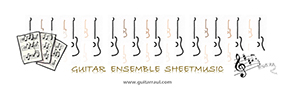This essay explores the themes of imitation and imagination surrounding the Spanish guitar in the works of Manuel de Falla, specifically his adaptations of Pedro Antonio de Alarcón’s “El sombrero de tres picos.” The discussion contextualizes Falla’s orchestral use of the guitar within 19th-century nationalism, linking literary and visual representations of the guitar to an ‘orientalist’ style, and examines the tension between modernity and mimesis. It reflects on the critical reception of Falla’s modernist approach and the philosophical implications of mimesis in music, concluding with the notion that la guitarra española serves as both a reflection and reconfiguration of Spanish identity.


Imitating and imagining la guitarra española: Manuel de Falla´s El Sombrero de tres picos
This entry was posted in Analisys of musical works, Historical research, THE SPANISH GUITAR. Bookmark the permalink.



